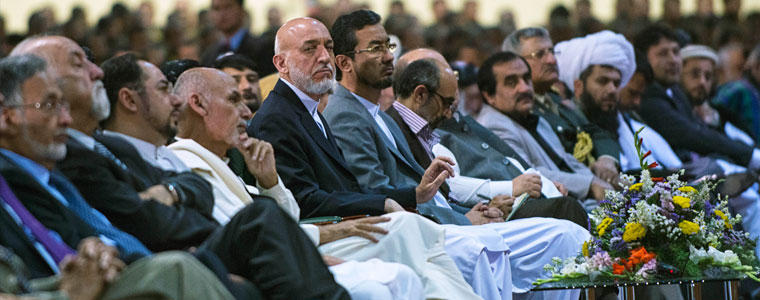The sudden breakdown of potential peace talks on Afghanistan just a day after the Taliban triumphantly announced the opening of an office in Qatar that was to be the hub of those efforts raises a more profound question: does the United States want a negotiated peace more than either of the parties?

Whatever one’s thoughts on the likelihood of a peace process, the agreement to open the political office in Doha seemed like a triumph of American diplomacy, which had shown persistence, discretion, and flexibility in ultimately attaining the objective officials had sought for the past 2 1/2 years.
But several hours later, everything was in heaps. Not only had Karzai backed away from talks with the Taliban, he suspended negotiations with the U.S. over the post-2014 troop presence. This both signaled the extent of his displeasure and will raise the costs of resuming both processes.
The reason for the sudden breakdown was a press conference that the Taliban gave to announce the opening of the office. They called it the “political office of the Islamic Emirate of Afghanistan,” hung a banner saying the same behind them, and appeared with the Qatari deputy foreign minister, whose presence appeared to endorse a de facto embassy. As I wrote in my blog post last week, this is precisely what Karzai feared the office would become.
Karzai does not trust a U.S.-brokered peace process that excludes his government, and he was afraid that the Taliban office would be used more to legitimize the Taliban by granting it international recognition than to advance negotiations. His fears were immediately justified.
On the weekend of June 8 in Doha, on the sidelines of the U.S.-World Islamic Forum, U.S. diplomats had failed to secure President Karzai’s agreement to recognize the office in Doha, which was first proposed at the end of 2011. It was to serve as a venue for negotiations between the Taliban and the Afghan government to find a political solution to the war.
On June 18, the White House announced that the Doha office would open. The spur was a statement by the Taliban that they supported a peace process and opposed the use of Afghan territory to threaten other countries. Qatar also made a statement. There was no statement from Kabul, but Karzai had obviously finally provided his consent.
U.S. and Qatari diplomats are apparently scrambling to repair the damage. But it will be that much harder now to secure Karzai’s consent and active cooperation, as well as his cooperation on other issues.
If the U.S. wants an agreement more than either of the parties, and it expends political and other capital to get the parties to the table, then it may run out of capital long before the parties even approach agreement.
Scott Smith is deputy director of USIP’s Afghanistan program.



